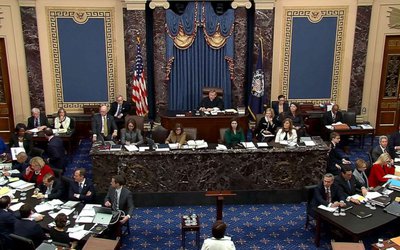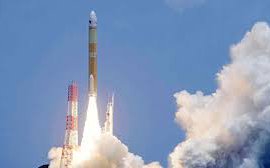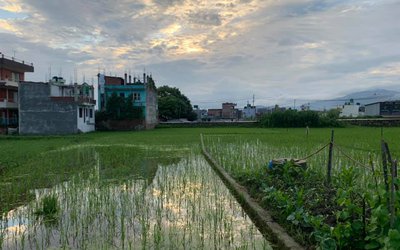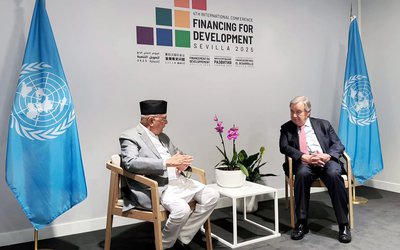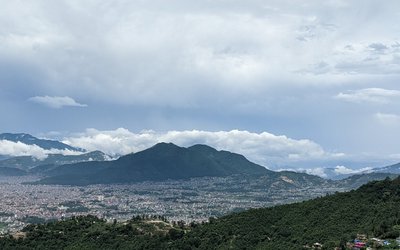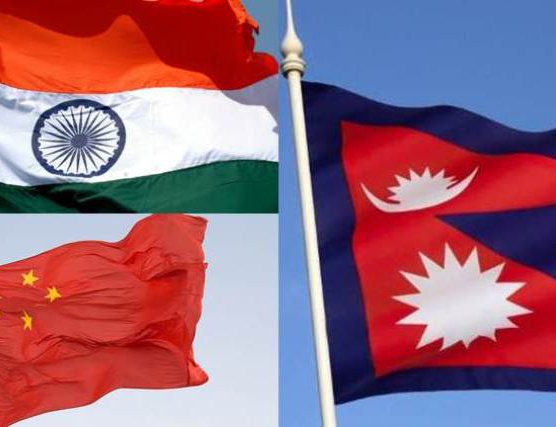
Chinese scholar Zhang Shubin said that Nepali Congress Party (NCP) Government not only does harm to the legitimate rights of Chinese corporations and shows an unfriendly attitude toward China, but also demonstrates its tendency to form a more intimate relationship with India
He said that right before the election, the Nepalese cabinet scrapped the memorandum of understanding to construct the Budhi Gandaki hydropower project which was signed between the former Nepalese government and China Gezhouba Group Corp. The media has now over-interpreted the decision as a Sino-Indian power struggle connected to the Nepalese election.
“The previous Prachanda government was comprised of the Communist Party of Nepal (Maoist Centre) and the NCP. The Prachanda government negotiated with the NCP and decided to grant the right to build the Budhi Gandaki hydropower project to a Chinese company. However, the capricious backtracking on the agreement by the current NCP government not only does harm to the legitimate rights of Chinese corporations and shows an unfriendly attitude toward China, but also demonstrates its tendency to form a more intimate relationship with India,” said Shubin.
“Right before, China had incorporated the project into the framework of the Belt and Road initiative in September in response to the request of the Nepalese government,” said Shubin. He also stressed that China ready to support Nepal on a path of prosperity, whoever wins elections.
In his article published in the Global Times, Shuin writes the first phase of Nepal's parliamentary and provincial assembly elections was held successfully in 32 districts in the hills and mountains on Saturday. The second phase of the election will be held in the other 45 districts on December 7. It is the first parliamentary and provincial assembly election since a new constitution became law two years ago. People hope that through this election, Nepal can end its long-term political turbulence and concentrate on economic development so it can shake off persistent poverty.
He further said that the election is now a contest between the left-wing alliance of the Communist Party of Nepal (Unified Marxist-Leninist) led by KP Oli and the Communist Party of Nepal (Maoist Centre) led by Pushpa Kamal Dahal (known as Prachanda) and the democratic coalition, which is dominated by the centrist Nepali Congress Party (NCP) and led by current Prime Minister Sher Bahadur Deuba.
“It is their respective internal needs that drove the two Nepalese communist parties to form a coalition. The former wants to return to power; the latter wants to have a good result in the two-phase election given its disadvantageous position in local elections. China has always pursued a policy of non-interference in other countries' internal affairs, and ascribing the formation of the left-wing alliance to the influence of China is undoubtedly an exaggeration and an excuse that aims to harm the interests of China,” writes Chinese scholar Shubin.
- Weather Forecast: Generally Cloudy With Light To Moderate Rainfall In Many Places
- Jul 02, 2025
- Prime Minister Oli And UN Secretary-General Discussed Issues of International Concerns
- Jul 01, 2025
- Nepal Airlines Corporation in 67 years
- Jul 01, 2025
- Johannes Zutt Appointed World Bank Vice President for South Asia
- Jul 01, 2025
- Weather Forecast: Generally Cloudy With Heavy Rainfall Is Likely In One Or Two Places Of Kathamndu Valley, Madhesh And Koshi Province
- Jul 01, 2025
